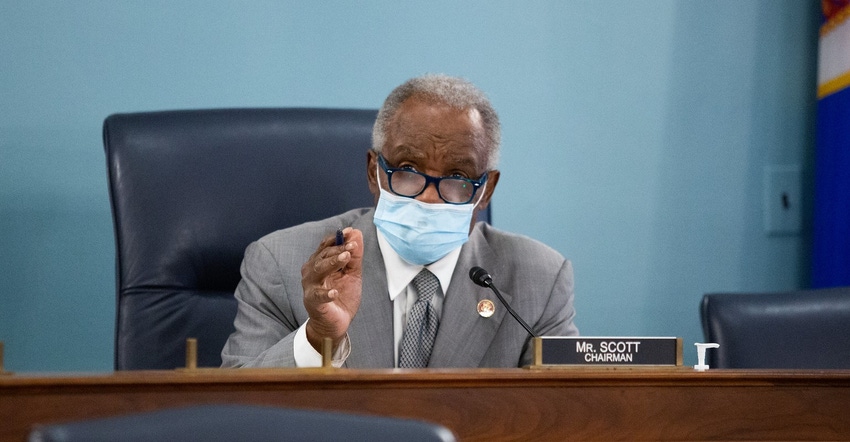
The House Democratic Steering Committee selected Rep. David Scott of Georgia over Rep. Jim Costa of California on a 32-19 vote as its nominee for House Agriculture Committee chairman for 2021. The Democratic caucus will vote on the recommendation Thursday for Scott to replace long-time agricultural Democratic leader Rep. Collin Peterson, Minnesota, who did not get re-elected in this fall’s election.
Scott ranks highest in seniority on the House Ag Committee and has served as an active member of the Committee since first being elected to the House in 2002. Scott previously served as the subcommittee chair of the Commodity Exchanges, Energy and Credit subcommittee. He will be the first representative from Georgia, and the first Black person to serve as committee chair.
Scott was born on a farm in rural South Carolina during segregation. After his parents moved north to find work, Scott said he spent his childhood years living and working on his grandparents’ farm. “The core lessons I brought from these experiences still resonate throughout farming communities today, and I have drawn upon them as I have fought to support the needs of rural and urban America,” Scott said in announcing his intent to run for the chairmanship.
Scott said he has fought to elevate the needs of vulnerable communities and ensure a stable and skilled workforce as well as strengthen the agriculture industry for future generations.
"However, the work of our Agriculture Committee in many ways reflects the most basic needs of our nation--food, nutrition, and financial resources--but also mirrors the greater movements of our time. And, amid a global pandemic, many fault lines already present in rural America have deepened,” Scott said.
Scott noted even during years of growth, rural economies have lagged behind urban development, and the only pathway to prosperity for many of our young people drew them to seek opportunities beyond the borders of their rural towns. “And now, the heavy weight of the virus has fallen on these struggling communities, as access to reliable broadband, education, childcare and medicine are just out of reach,” he said. “Rebuilding our economy must be inclusive and equitable, incorporating job growth and revitalization to strengthen our nation as a whole.”
Scott stated, “The threat of climate change is a present and growing danger, and we must promote sustainable agriculture solutions that are economically viable, ecologically just, and support the social fabric of our rural communities.”
He also said transitioning away from fossil fuels toward ethanol and biofuels can create jobs and foster economic opportunities in our rural communities. And as trade wars and the global pandemic have fractured our supply chains, small and mid-size farmers can partner with local organizations to open new markets and provide fresh produce at fair prices, he added.
“The challenges before us go beyond simply fixing the mistakes of past administrations,” Scott said. “Each hearing, markup, and legislative action must take a step forward toward building a more equitable, dynamic, and resilient agriculture industry that lays forth a new path for future generations.”
National Cattlemen’s Beef Association CEO Collin Woodall welcomed the nomination and called Scott a “devoted friend of America’s cattle producers.” Woodall added, “His leadership and expertise on cattle issues demonstrates his commitment to helping producer succeed. He is a consummate leader and an ideal choice to lead the committee.”
About the Author(s)
You May Also Like






